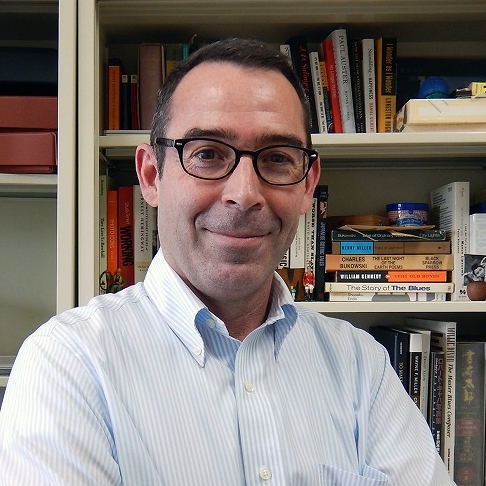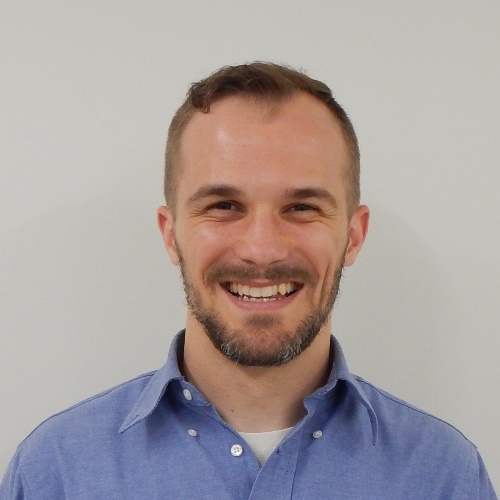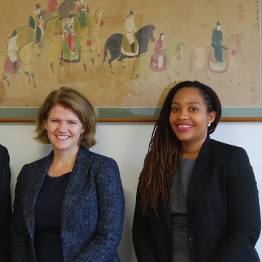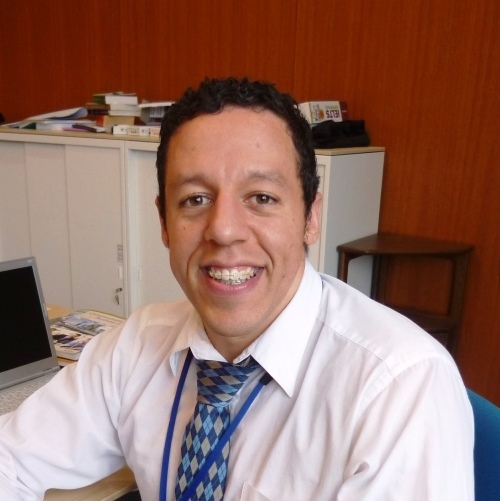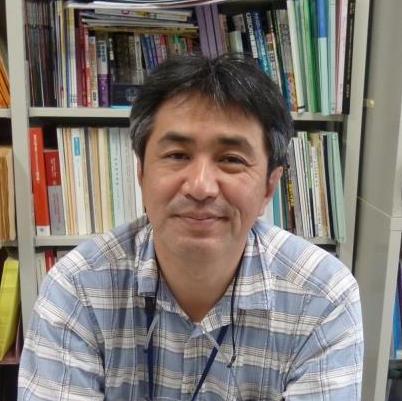KU-GLOCS is the general term referring to various globalization initiatives by Kanazawa University,
including its participation in the Top Global University Project (Super Global Universities).
KU-GLOCS
KU-GLOCS is the general term referring to various globalization initiatives by Kanazawa University,
including its participation in the Top Global University Project (Super Global Universities).
YOU & KU-SGU
"!" and KU-SGU
As Kanazawa University responds to globalization, it introduces a wide range of surprises (!),
unrestricted by existing boundaries.
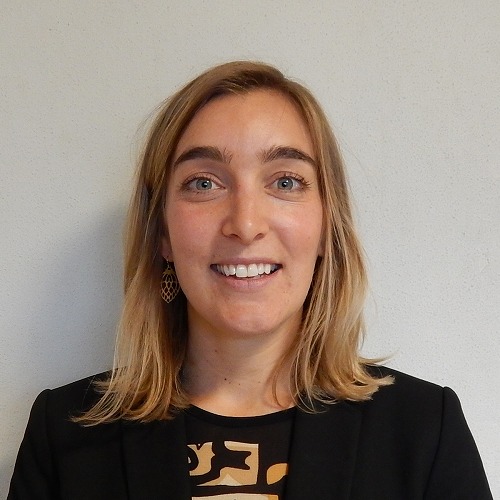

Tufts University
International Student and Scholar Advisor, Internatiolnal Center
Whitney SULLIVAN
As part of the globalization for administrative staff, Kanazawa University started a program for staff training, which sends administrative staff to selected partner institutions. In FY2015, 2 staff members have been sent to Tufts University (USA) and 2 others have been sent to Ghent University (Belgium.) In order to enhance mutual exchange, we started to accept administrative staff from those partners. Following Mr. Patrick Himes, who visited Kanazawa University in May, Ms. Whitney Sullivan, another member of the International Center at Tufts University, visited us in November.
-Is this the first time for you to come to Japan?
Yes, it’s my first time. When we heard of this staff exchange program, Patrick, who came to Kanazawa in May, and I showed a lot of interest. I’ve worked at many of different universities in the Boston area. I’ve also attended universities abroad, so I was eager to see the structure of another university and experience life on campus at KU.
– What is your impression of Kanazawa University?
It’s a beautiful campus, really gorgeous, very green. Also the buildings are very beautiful, and large, and very new. The interviews that I’ve had with staff and faculty members have been really positive and enlightening. Also, everybody on campus has been very welcoming, which gives me a really good first impression!
– Can I ask you about your academic and professional career?
For my undergraduate degree, I majored in Political Science and minored in Hispanic Studies and International Relations. After graduating from college, I worked on a political campaign, but the job didn’t suit me. So I decided to go back to graduate school to study Intercultural Relations. At first, my hope was actually to work with refugees; helping refugees and asylees adjust to life in the U.S. Nonetheless, I had an opportunity to work as a graduate assistant in the International Student Services Office at my university and I learned a lot about international students, immigration, and programming, and I really liked it. This particular Master’s program has a smooth transition into higher education, so that’s where it led me! After working as a graduate assistant for 2 years, I worked at two other universities in the Boston area before getting my job at Tufts.
– Have you ever experienced living abroad?
I lived abroad twice in my life. When I was in a high school, I spent my junior year in Saalfelden, Austria. I lived with two different host families and attended the local high school for one year. This experience helped me pull away from American culture and allowed me to fully immerse myself in another language and culture. In college, I wanted to do another exchange year, but I had already been to Austria and learned German so I wanted to spice things up a bit! I took two semesters of Spanish and then studied for one year in Montevideo, Uruguay (South America). It was a very rich experience. The Uruguayan people are very educated in the arts and global politics; the younger generation is active and engaged. I admired that so much because in my experience at my campus in the U.S., young Americans were not always as engaged and proactive in their communities.
– So your experience as a study abroad student links to what you’re doing now? What challenges do your students face?
What was interesting for me is that my experience as a study abroad student is very different from the experience that my students have as international students, because my experience was only short term, and their experience lasts for their entire academic degree program.
The biggest challenge for graduate students is financial difficulty. Also, some of them have difficulties with their English skills, so we offer language programs specifically for graduate students. For undergraduate students, in the beginning, adjusting to a workload at Tufts is very challenging. Education at Tufts is rigorous, and can be a difficult transition for students. I think some of the challenges may not always be academic, but also include social norms, American teaching styles, and definitely the food! In the US, it is expected that you participate in the classroom and ask questions, even if you disagree with the professor. This can be very difficult for students to get used to, because it may not be what they are used to in their classrooms back home. Also, our student clubs and our student organizations are very strong; part of being a Tufts student and community member is not just engaging academically but also socially. Initially, this can be overwhelming, but eventually students get the hang of it and learn to manage their workload with extracurricular activities. For international students, I think the first year is definitely a challenge, but I love to see the international students really grow into themselves. For example, one of our students from China was shy and quiet when she arrived at Tufts, she attended Global Orientation (GO), then she became a GO host advisor, and is now very social, funny and outspoken! She changed a lot, and a lot of students do so. It’s a great thing to see as an advisor.
– What is the biggest difference between Tufts and other universities you ever worked at?
The sense of community. Especially the international community at Tufts; it’s very large and active. We focus a lot on programming and offer a variety of programs for international students. At larger schools in the Boston area programming is secondary, and those offices must focus solely on immigration – which is very important, but lacks relationship building. Our office, the International Center (I-Center) has always put an emphasis on programming, this stems from our Director, who has been the Director of the I-Center for over 30 years. We’ve continued programming and offering strong programs to help our students settle into life at Tufts, and to become better acquainted with our office and staff. As some schools are moving away from programming, based on the lack of resources and the increase of regulations put forth by U.S. Department of Homeland Security, our school truly is moving forward with programming and immigration conjointly with equal importance. Often times in our job, we can be seen as the immigration police, but we don’t want that role. I think that through our programs, students are able to see us in a way that’s not just immigration police but as their friend who truly cares about their experience and their success. You can’t demonstrate that to students just sitting down processing immigration records, and telling them what they can and can’t do. Through the programming, our relationships with students are growing, and we build trust; then they feel comfortable to come to us with other concerns because they trust us and know us beyond their immigration paperwork. I think that is really important, because if students can’t feel confident to tell us how they are feeling and what’s going on, there is no way to help them. And I think the hardest thing in our field is how we help our students that haven’t told us that they need help. So I believe that through programming and building relationships, we can definitely have more opportunities to open the doors of communication and provide support where needed.
– So, the programming is not just for fun, but also for students’ care. What is your favorite program your office offers?
A popular program we run is Global Orientation (GO). GO is a 4-day pre-orientation program for incoming undergraduate students, both international and domestic. It is one of six pre-orientation programs offered at Tufts. It’s not mandatory, but we encourage our new international students to join. The GO participants are able to check-in to their dorms early, get settled on campus, and make new friends. Once school starts, the campus is full and can be very overwhelming. There are other formal orientations held for new students around campus, meeting the President, Deans, and faculty members, but GO is the initial introduction to Tufts – and it’s certainly never boring! GO, the more fun orientation, is meant to break the ice. It’s run and organized by the student coordinators, host advisors (this year we had around 26), and I-Center staff. Host advisors are program volunteers.
– How can you gather that many students for the event as volunteers?
Tufts students are very engaged in their community. So a lot of students’ volunteer mainly to gain new experiences and give back to the Tufts community. For GO, the majority of the host advisors were participants in GO when they came to Tufts. Because it truly is a very fun orientation, they want to come back and give back to the community and become a host advisor. It’s quite competitive. First, we choose two program coordinators, who are paid and have a lot of responsibility. The candidates for host advisors must attend an Info Session before they can apply for the position. The two coordinators, along with I-Center staff, select the host advisors.
– Are there any other programs that are popular among international students?
Any program that serves food (for free) is popular! That’s the trick to drawing a crowd, so we always provide food. In all seriousness, my favorite program of the year is hands down Parade of Nations. The program is held every year in March. This too is run by students, a student organization called the International Club (I-Club), which has a lot of members and may be one of the largest clubs on our campus. A variety of dance teams, both international and domestic, perform in the show. There is a range of music, clothing, and history presented at this show and its literally jaw-dropping! It’s organized in a very professional manner by our students. At the end of the dance performances there is a flag show; every country represented at the event will be announced, and the students carry their flag down the aisle. It’s a really nice way to bring people together through music and dance, and offers a unique cultural experience on campus. It truly is a Parade of Nations.
– That sounds interesting! I’d love to see it.
You would love it! It would be great if some staff from Kanazawa could be a part of our Global Orientation or Parade of Nation programs to see what happens, how we prepare, and student engagement. I think the experience is more powerful than telling you about it. So my hope is that as Tufts and KU continues their partnership and staff exchanges, we can integrate you into these programs so you can see for yourself how they are run and perhaps implement something similar back on KU’s campus!
– I think that’s a good idea, too! We do hope our partnership will be strengthened and prolonged. Thank you for your time today.
(Interviewed in November 2016)
Look more other posts in this category
-
Faculty of Foreign Language Studies, Institute of Liberal Arts and Science
Associate Professor
Mark HAMMOND -
Tufts University
International Student and Scholar Advisor, Internatiolnal Center
Patrick HIMES -
Tufts University
Office of Student Affairs
Mary Patricia MCMAHON and Nandi BYNOE -
Kanazawa University Super Global ELP Center
Assistant Professor
James ROSENBERG -
*Taking the program at the Kanazawa University Super Global ELP Center*
Professor, Faculty of Electrical and Computer Engineering, Institute of Science and Engineering
AKITA Junichi
